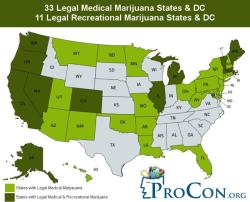What food is best for stomach problems?
When you have stomach problems, such as indigestion, gastritis, acid reflux, or an upset stomach, choosing the right foods can help alleviate discomfort and promote digestive health. Here are some dietary recommendations for individuals with stomach issues:
Ginger: Ginger is known for its anti-inflammatory and soothing properties. It can help alleviate nausea, indigestion, and upset stomach. You can consume ginger as ginger tea, ginger ale, or by adding fresh ginger to your meals.
Bananas: Bananas are gentle on the stomach and can provide a good source of potassium, which may be depleted if you've been experiencing diarrhea or vomiting.
Oatmeal: Plain, unsweetened oatmeal is easy to digest and can provide a good source of fiber. It can help stabilize blood sugar levels and provide a feeling of fullness without aggravating stomach problems.
White Rice: White rice is bland and easy to digest. It can be a good choice when you have an upset stomach or diarrhea, as it can help absorb excess fluids and provide a source of energy.
Applesauce: Unsweetened applesauce is gentle on the stomach and can help soothe irritation. It's also easy to digest and provides a source of fiber.
Boiled or Baked Potatoes: Potatoes are easy to digest and can provide a good source of carbohydrates. Avoid adding rich or spicy toppings like butter or hot sauce.
Plain Yogurt: Yogurt with live active cultures (probiotics) can help promote healthy gut bacteria and aid in digestion. Choose plain yogurt without added sugars.
Lean Proteins: If you include protein in your meal, opt for lean sources like skinless poultry, fish, or tofu. Avoid fatty or heavily processed meats.
Herbal Tea: Herbal teas like chamomile, peppermint, and fennel can help soothe an upset stomach and promote digestion. Drink them plain or with a touch of honey.
Water: Staying hydrated is crucial when you have stomach problems. Sip on water throughout the day to prevent dehydration.
Foods to Avoid:
- Spicy, greasy, and heavily seasoned foods can irritate the stomach lining and worsen symptoms.
- Citrus fruits and juices, tomatoes, and tomato-based products can trigger acid reflux.
- Carbonated beverages and caffeinated drinks may contribute to indigestion and acid reflux.
- Alcohol can irritate the stomach lining and should be consumed in moderation or avoided, especially if you have gastritis or ulcers.
It's important to note that individual tolerance to foods can vary, so what works for one person may not work for another. If you have chronic or severe stomach problems, it's advisable to consult with a healthcare professional or a registered dietitian who can provide personalized dietary recommendations based on your specific condition and needs.
1. Nutritional Choices for Alleviating Stomach Problems
Eating a healthy diet is important for overall health and well-being, and it can also help to alleviate stomach problems. Some specific nutritional choices that can be beneficial for people with stomach problems include:
- Bland, easily digestible foods: When your stomach is upset, it is best to avoid foods that are difficult to digest, such as fatty, greasy, spicy, or acidic foods. Instead, opt for bland, easily digestible foods such as bread, rice, crackers, bananas, and applesauce.
- Probiotic foods: Probiotics are live bacteria that are beneficial for gut health. Probiotic foods, such as yogurt, kefir, and sauerkraut, can help to improve digestion and relieve symptoms of stomach problems such as diarrhea, constipation, and gas.
- Fiber-rich foods: Fiber helps to keep the digestive system healthy and regular. Good sources of fiber include fruits, vegetables, and whole grains.
- Hydration: It is important to stay hydrated, especially when you have stomach problems. Drink plenty of water and other fluids, such as clear broths and sports drinks.
2. Foods that Soothe and Support a Healthy Digestive System
Some specific foods that can soothe and support a healthy digestive system include:
- Ginger: Ginger has anti-inflammatory and anti-nausea properties. It can be consumed fresh, grated, or in the form of tea or capsules.
- Chamomile: Chamomile is a calming herb that can help to reduce stomach upset and indigestion. It can be consumed as a tea or in capsule form.
- Peppermint: Peppermint has antispasmodic properties that can help to relax the muscles in the digestive tract. It can be consumed fresh, brewed as a tea, or in capsule form.
- Bananas: Bananas are a good source of potassium, which can help to replace electrolytes lost due to vomiting or diarrhea. They are also a bland, easily digestible food.
- Applesauce: Applesauce is another bland, easily digestible food that is good for people with stomach problems. It can also help to soothe a sore throat.
3. Dietary Recommendations for Managing Various Stomach Issues
Here are some dietary recommendations for managing various stomach issues:
- Acid reflux: People with acid reflux should avoid foods and drinks that can trigger heartburn, such as spicy foods, fatty foods, and acidic foods and drinks such as citrus fruits and coffee.
- Diarrhea: When you have diarrhea, it is important to stay hydrated and to eat bland, easily digestible foods. You should also avoid foods and drinks that can worsen diarrhea, such as caffeine, alcohol, and dairy products.
- Constipation: If you are constipated, eat plenty of fiber-rich foods and drink plenty of fluids. You may also want to try a laxative or stool softener.
- Irritable bowel syndrome (IBS): People with IBS should avoid foods that trigger their symptoms. Common triggers include dairy products, gluten, and certain fruits and vegetables.
If you have any concerns about your stomach health, be sure to talk to your doctor. They can help you to develop a dietary plan that is right for you.
It is important to note that this is general information and should not be taken as medical advice. If you have any specific questions or concerns about your health, please consult with a healthcare professional.












